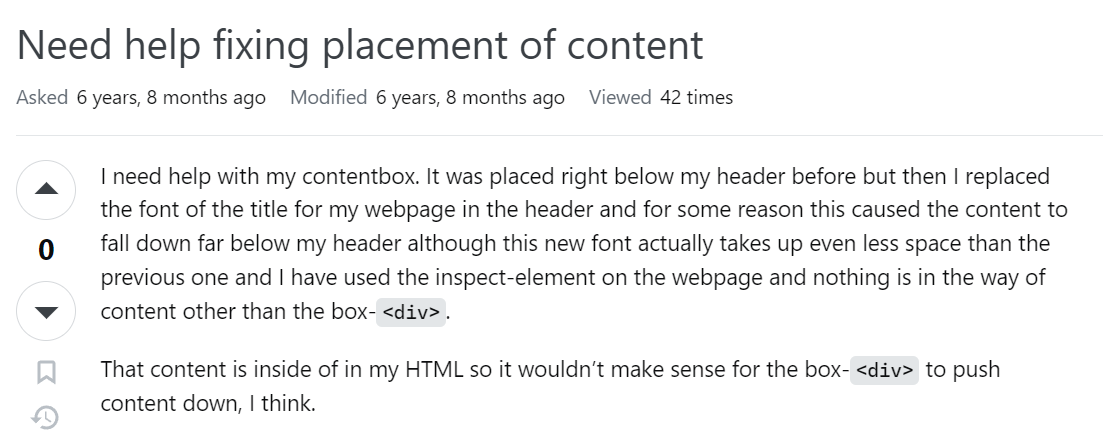The Importance of Asking Smart Questions
12 Sep 2024In software engineering, technical expertise is only part of what defines a great developer. Equally critical is the ability to communicate effectively, especially when seeking help on complex issues. One of the most valuable communication skills for a software engineer is the ability to ask “smart questions”—questions that are clear, specific, and show prior thought. Asking questions in a smart way dramatically increases the likelihood of receiving timely and relevant answers. In this essay, I will explore why asking smart questions is crucial for software engineers, using two examples from StackOverflow to illustrate the stark contrast between smart and not-so-smart questions.
The Smart Question: Fixing Git after macOS Update:

A perfect example of a smart question is one titled, “Git is not working after macOS update (‘xcrun: error: invalid active developer path (/Library/Developer/CommandLineTools’)”. The user encountered an issue with Git after updating their macOS, where typing git status resulted in an error: “xcrun: error: invalid active developer path (/Library/Developer/CommandLineTools).” This problem occurred after a system update or restart.
What makes this question smart is its clarity and the relevant details it provides. The user doesn’t just present the error; they offer context by specifying that the issue started after a macOS update, which narrows down the problem significantly. Additionally, the full error message is included, giving responders a concrete starting point. This shows that the user has already thought about what might have caused the issue and is offering the community useful information.
The responses to this question were as clear and effective as the question itself. The top answer suggested reinstalling the missing command-line tools using xcode-select --install, a simple and direct solution. The high number of upvotes on the answer reflects the effectiveness of the response. The user’s detailed problem description allowed the community to provide targeted help, quickly resolving the issue for not only the asker but many others with the same problem. This demonstrates how a well-asked question can lead to efficient solutions and broader community benefit.
The Not-So-Smart Question: Misplaced Content Box:

On the other end of the spectrum, a not-so-smart question titled, “Need help fixing placement of content”, serves as a cautionary example. In this case, the user encountered a layout issue after changing the font in the header of their webpage. The content box that was previously just below the header had inexplicably moved far down the page. The user stated that the new font took up less space and that nothing appeared to be in the way, but offered no additional information.
While the question briefly describes the issue, it fails to provide the necessary details to help others understand the problem. The user does not include a code snippet, making it difficult for others to see the layout structure or identify what might be causing the issue. They also don’t explain what they’ve already tried to resolve the problem, leaving responders with little to go on. Instead, the user makes vague statements like “nothing is in the way,” which doesn’t provide any meaningful insight.
Unsurprisingly, this question received no responses at all. Without specific information or a clear problem statement, the community couldn’t engage with the question in a meaningful way. The lack of code, missing context, and minimal effort from the asker made it nearly impossible for anyone to offer helpful advice. This highlights the importance of articulating problems thoroughly and thoughtfully to encourage useful interaction.
In the fast-paced world of software development, where problems can be highly specific and technical, the ability to communicate issues clearly is crucial. By learning to ask smart questions, software engineers not only solve their own problems faster but also contribute to a collaborative and supportive environment for others. This skill fosters a culture of continuous learning, where both the individual and the community benefit
In conclusion, asking smart questions is not just a practical skill—it’s a cornerstone of effective communication and collaboration in software engineering. Developing this skill will make any developer more capable, efficient, and respected in the eyes of their peers, while also building a stronger, more helpful community for everyone involved.